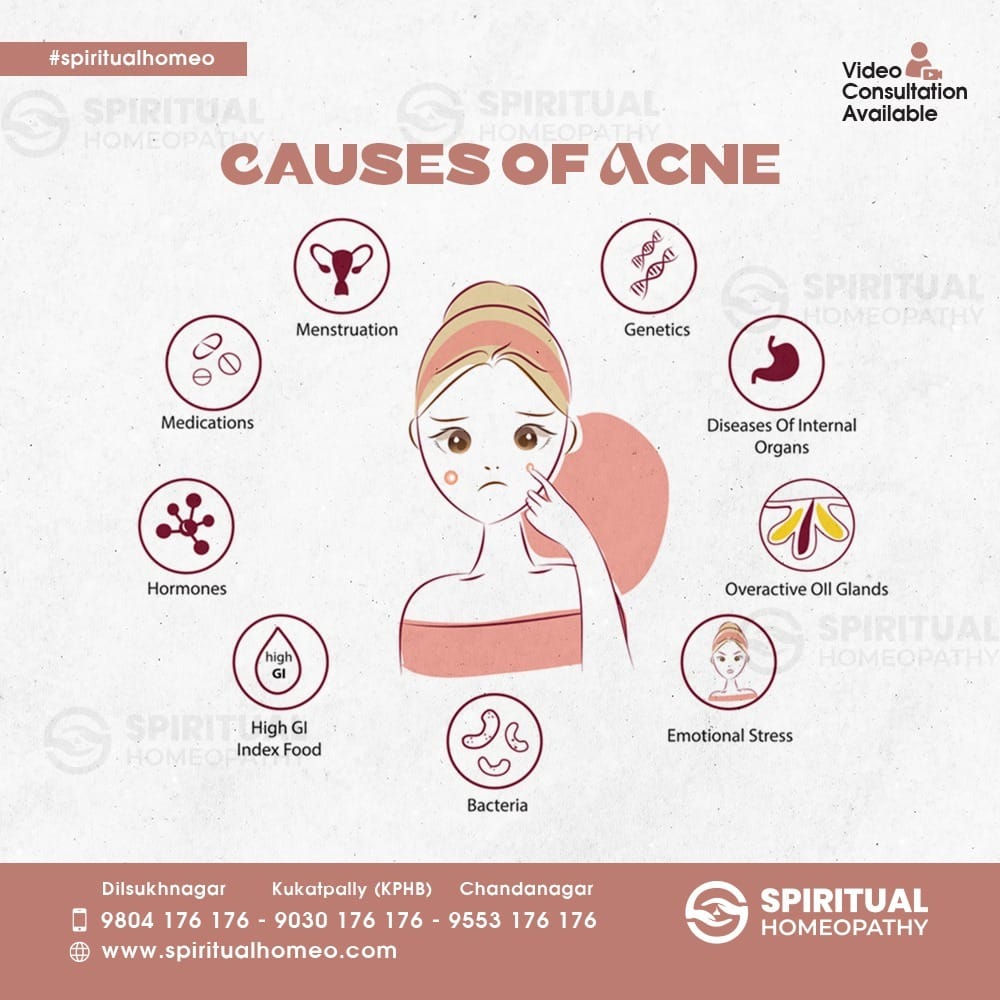Acne is a common skin condition that occurs when hair follicles become clogged with oil and dead skin cells. While the exact cause of acne is not fully understood, several factors contribute to its development. Here are some common causes of acne:
Excess oil production: Increased oil (sebum) production by the sebaceous glands is a primary factor in the development of acne. Hormonal changes, particularly during puberty, can stimulate the sebaceous glands to produce more oil, leading to clogged pores.
Clogged hair follicles: When the hair follicles become clogged with oil and dead skin cells, they can form comedones, which are non-inflammatory acne lesions like whiteheads or blackheads. These clogged follicles create an ideal environment for the growth of acne-causing bacteria.
Bacterial growth: Propionibacterium acnes (P. acnes) is a type of bacteria that naturally resides on the skin. When the follicles are clogged, P. acnes can multiply, leading to inflammation and the development of inflammatory acne lesions, such as papules, pustules, nodules, or cysts.
Hormonal changes: Hormonal fluctuations, especially during puberty, menstruation, pregnancy, or when starting or stopping certain hormonal medications (e.g., birth control pills), can contribute to acne. Androgens, a type of hormone, can stimulate the sebaceous glands, leading to increased oil production.
Genetic factors: Acne can have a genetic component, meaning that if your parents or siblings had acne, you may be more prone to developing it. Genetic factors can influence how your skin responds to hormones and how susceptible you are to inflammation.
Certain medications: Some medications, such as corticosteroids, androgenic steroids, or certain anticonvulsants, can contribute to acne development as a side effect. It is important to consult with a healthcare professional about potential acne-related side effects when starting or changing medications.
Environmental factors: Exposure to certain environmental factors, such as high humidity or pollution, can exacerbate acne or make it more difficult to manage. Additionally, friction or pressure on the skin from helmets, tight clothing, or repetitive touching or rubbing of the skin can contribute to acne formation.
Dietary factors: While the role of diet in acne development is not yet fully understood, certain dietary factors may influence acne. High glycemic index foods (e.g., sugary and processed foods) and dairy products have been suggested as potential triggers for some individuals, although more research is needed in this area.
It’s important to note that while these factors can contribute to acne, individual experiences may vary. If you’re concerned about acne or its impact on your skin, it’s advisable to consult with a healthcare professional who can provide a proper diagnosis, recommend appropriate treatment options, and offer personalized advice based on your specific situation.
Book an Appointment
Take the first step towards better health with Spiritual Homeopathy Clinics with best homeopathy doctors in Hyderabad
Call Us:
- KPHB: 9030 176 176
- Chandanagar: 9804 176 176
- Dilsukhnagar: 9553 176 176
Enjoy the convenience of online consultations. Book your appointment through our mobile app, available on the Play Store and App Store under the name “Spiritual Homeopathy.”
Start your journey to holistic healing today. Book your appointment now!



